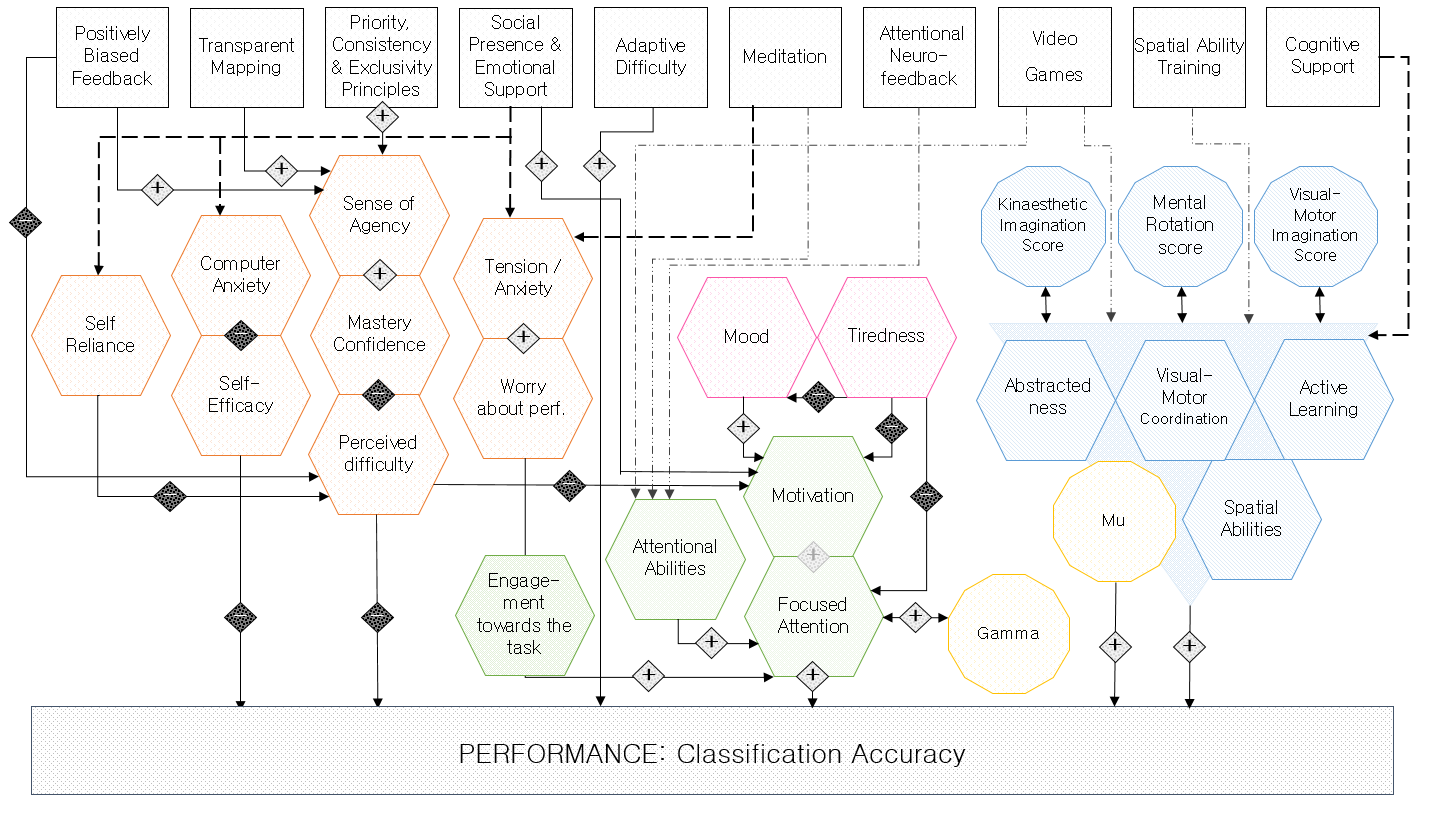Section: New Results
A model of Mental-Imagery BCI
Participants: Camille Jeunet and Fabien Lotte
Mental-Imagery based Brain-Computer Interfaces (MI-BCIs) enable users to control applications using their brain activity alone, by realising mental imagery tasks. Although promising, MI-BCIs remain barely used outside laboratories, notably due to the difficulties users encounter when attempting to control them. We claim that understanding and improving the user training process could greatly improve users’ MI-BCI control abilities. Yet, to better understand the training process, we need a model of the factors impacting MI-BCI performance. In other words, we need to understand which traits and states impact MI-BCI performance, how these factors interact and how to influence them to improve this performance. Such a model would enable us to design adapted and adaptive training protocols, to guide europhysiological analyses or design informed classifiers, among others. In this paper we propose a theoretical model of MI-BCI tasks, which is the first step towards the design of this full cognitive and computational model. This work was published in the International BCI conference [46].


